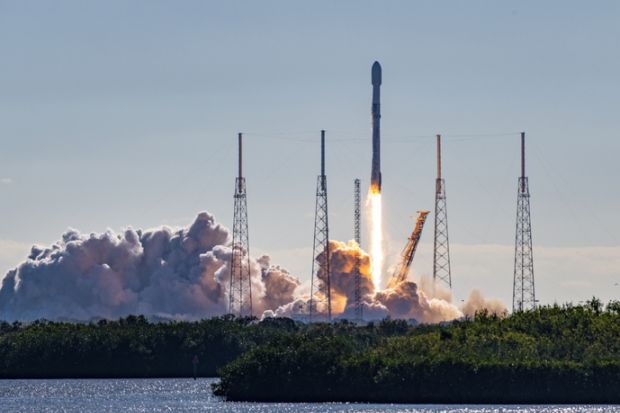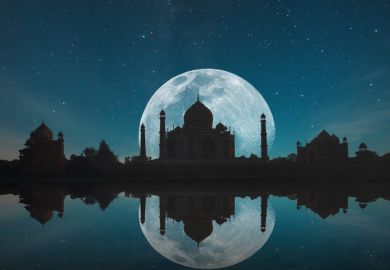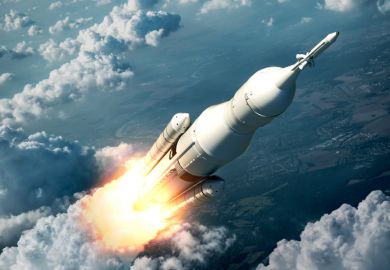Enhancing multidisciplinary education is crucial to the development of India’s burgeoning space industry, according to an expert.
“Space is a multidisciplinary subject,” said Abhishek Raju, co-founder and managing director of SatSure, an Indian space technology and satellite company.
“You cannot have single-discipline expertise,” he continued. “Of course, you do need experts, but you also need people with an attitude to be able to do multiple things, learn things quickly and build…expertise.”
Speaking at the Times Higher Education Innovation & Impact Summit in New Delhi, the entrepreneur said that universities were already playing a key role in supporting India’s space discovery programmes, including running student satellite missions and offering geospatial technologies as specialisations.
Mr Raju, a former sociology student, explained that his co-founders began their journey in space discovery while undergraduates in India, as part of the team that built India’s first student satellite.
They then went overseas to study space technology and space sciences before returning to India to start the company.
Enhancing interdisciplinary studies is a key part of India’s 2020 National Education Policy, with universities across the country increasingly embracing this style of teaching.
“From the people that are joining us – younger colleagues of mine – I see that universities are enabling this multidisciplinary specialisation,” Mr Raju said. “It’s still not enough.
“I think we can do more and give students an option to specialise in multiple subjects, even if they’re not directly related, because if [students] are to be successful in the space industry, they need to be multidisciplinary focused,” he said.
Delegates also heard from Rakesh Sharma, the first Indian to go to space as part of a Soviet mission in 1984. Wing Commander Sharma remains the only Indian to have been to space, although India is currently working on an astronaut programme.
The country has made significant strides in space discovery in recent years, with the 2023 moon landing marking a key milestone. India recently announced targets to establish its own space station by 2035 and send an astronaut to the moon by 2040.
“I would like to think that my flight was just a promo and what we continue to see now is the real movie, with the best part yet to come,” Wing Commander Sharma said.
Register to continue
Why register?
- Registration is free and only takes a moment
- Once registered, you can read 3 articles a month
- Sign up for our newsletter
Subscribe
Or subscribe for unlimited access to:
- Unlimited access to news, views, insights & reviews
- Digital editions
- Digital access to THE’s university and college rankings analysis
Already registered or a current subscriber? Login








